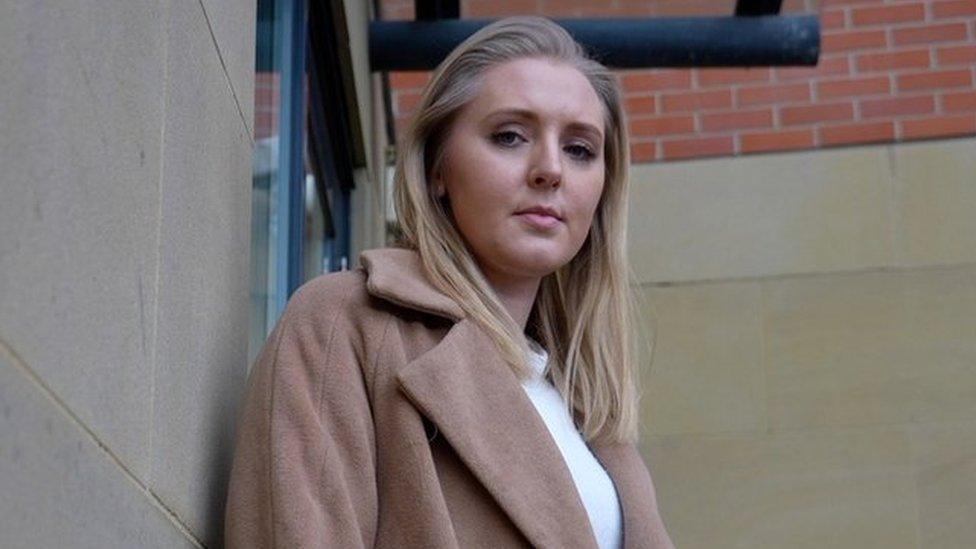Leasehold reforms: Michael Gove confident bill will pass by next election
- Published
- comments
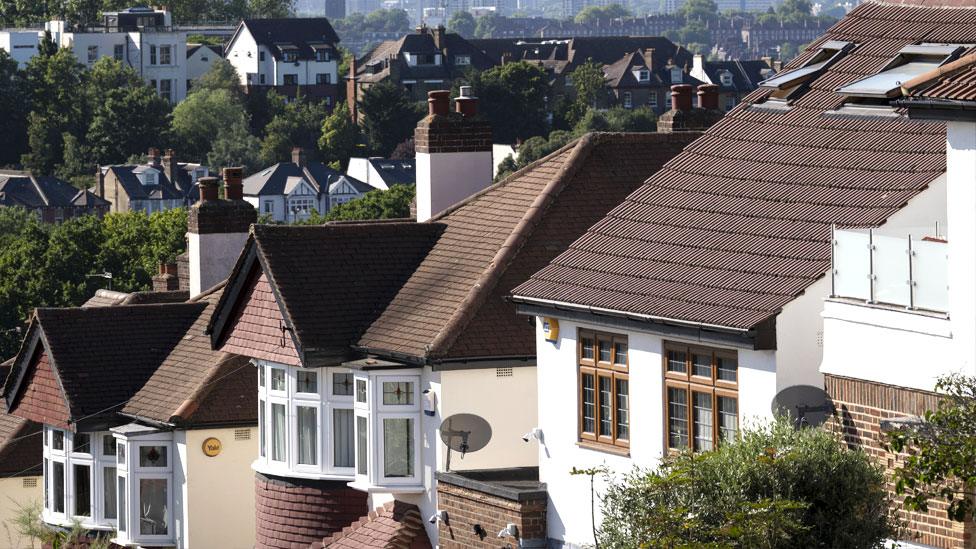
Housing Secretary Michael Gove has said he is confident a bill reforming the leasehold system in England and Wales will pass by the next general election.
The bill, which would ban leaseholds for new houses but not flats, is due to be introduced in Parliament later.
It would also make it easier and cheaper for homeowners to extend their lease or buy their freehold.
Under the current system leaseholders often have to pay ground rent and expensive maintenance charges.
This is because they only own the lease, which gives them the right to use the property, but not the land it is built on.
Mr Gove said the long-promised legislation would mean leaseholders can "take back control of their property" and ensure service charges and ground rents are transparent and "reasonable".
The plans have been broadly welcomed by campaigners but some are disappointed a ban on the sale of new leaseholds does not include flats.
There are an estimated five million leasehold homes in England - 70% of which are flats.
The proportion of new-build houses sold as leaseholds has fallen from a 15% high in 2016 to just 1% in December 2022.
Mr Gove, who has previously said he wanted to scrap the "outdated" system entirely, insisted he was still committed to this aim.
"Of course what we need to do is make sure we phase out leasehold over time altogether," he told the BBC.
But he added: "We want to make sure that we proceed in a way, in a complex area of law, that helps people now."
Asked if the bill could be passed by the next general election, which is expected in 2024, Mr Gove said: "I'm absolutely confident this bill will be on the statute book by the time of a general election.
"It has widespread support in the House of Commons and the House of Lords."
There have been reports, external some Conservative MPs could seek to amend the bill to abolish leaseholds for new flats as well as houses. Labour has said it would back such moves.
Mr Gove said: "We'll look at every amendment as it comes forward but I think it's very important to recognise that in this complex area of law we need to move as quickly as we can, to help as many people as we can, and that's what we're doing."
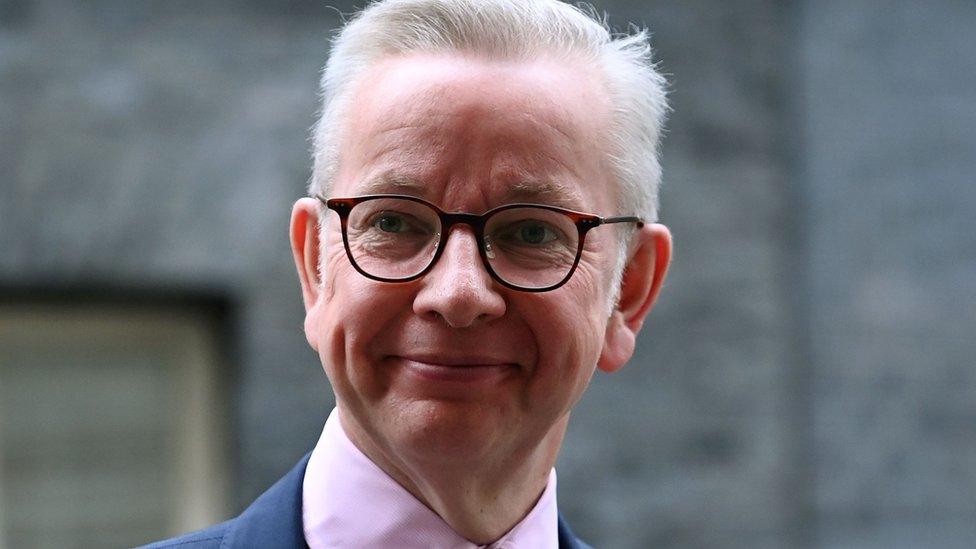
Michael Gove says the leasehold system is outdated
The government said the bill would increase the standard lease extension from 90 years to 990 years. Currently, extending a lease or buying the freehold can be a complicated and expensive process, often costing thousands of pounds including legal fees.
It said other measures would include:
Providing greater transparency over service charges by making freeholders or managing agents issue bills in a standardised format that can more easily be challenged
Making it easier and cheaper for leaseholders to take over the management of their property
Scrapping the presumption that leaseholders pay their freeholders' legal costs when challenging poor practice
Banning opaque and excessive buildings insurance commissions for freeholders and managing agents
Removing the requirement for a new leaseholder to have owned their house or flat for two years before they can extend their lease or buy their freehold
The government is also consulting on options to cap ground rents for existing leases.
A ground rent is paid by owners of leasehold properties on top of their mortgage, with some facing high charges and unexpected increases which can make homes difficult to sell.

Campaigner Katie Kendrick, a former leaseholder, has welcomed the bill
Katie Kendrick, founder of the National Leasehold Campaign, said the bill was "long overdue" and its introduction to Parliament was "momentous".
However, with the bill due to be published later, she added: "The devil, as always, will be in the detail."
Ms Kendrick bought the freehold of her leasehold house in Ellesmere Port, Cheshire, three years ago for around £8,000 including legal fees. But she said many of her neighbours on her estate who had more expensive ground rents could not afford to do the same and were now struggling to sell their property.
She said the legislation would "give some hope to leaseholders that they can have a way out of this... because at the moment, lots of leaseholders are trapped".
Ms Kendrick, who is also a Labour councillor in Cheshire, said all parties had failed to address issues with leaseholds over decades and it was crucial the bill was passed "swiftly".
She said her group would continue to campaign for a commonhold system for new flats, where occupants jointly own and take responsibility for their buildings without an expiring lease.
But she said she was "realistic" and believed if abolishing leaseholds for new flats was in the bill its progress would be slower and "we wouldn't have any hope of trying to get it through before a general election".
Labour has previously said commonhold should be the default tenure for all new properties, "with the system completely overhauled so that existing leaseholders can collectively purchase more easily and move to commonhold if they wish".

Sign up for our morning newsletter and get BBC News in your inbox.

Related topics
- Published29 October 2023
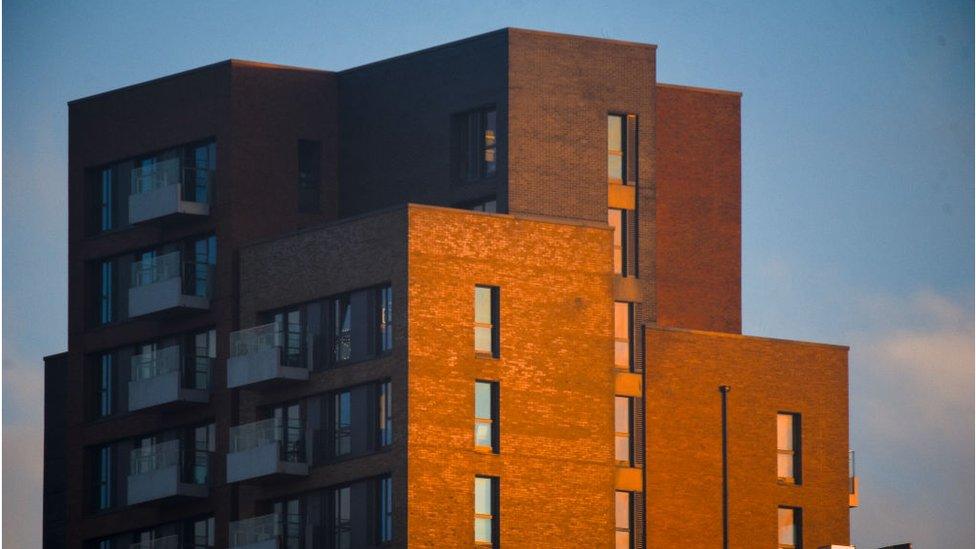
- Published11 May 2023
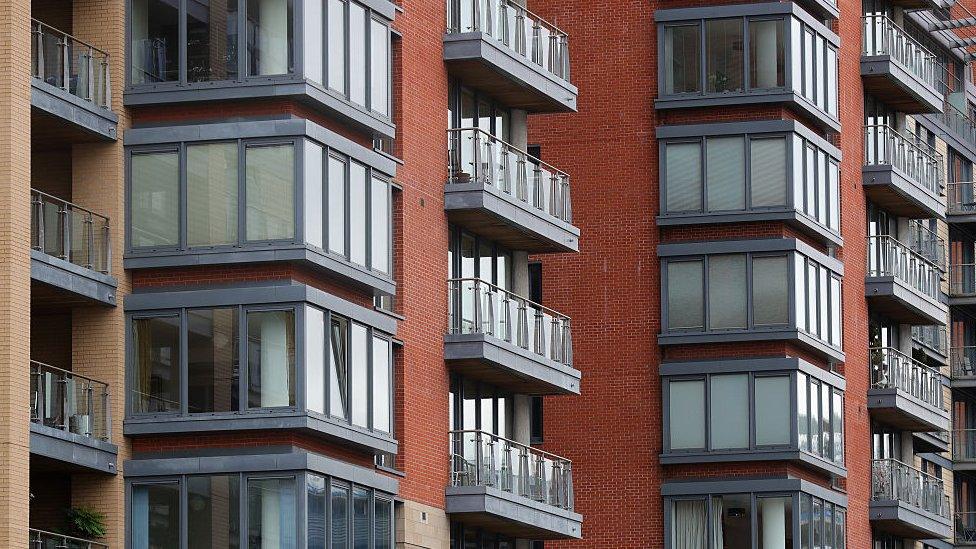
- Published4 March 2023
